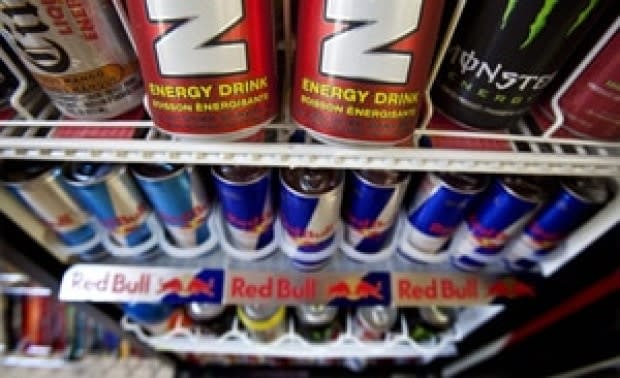Quebec may ban sale of caffeinated energy drinks to people under 16
Faced with evidence of adverse and potentially fatal health effects, Quebec's Health Ministry is contemplating a ban on the sale of caffeinated energy drinks to people under the age of 16.
The province is looking closely at that option amid recommendations from medical groups and a report by Radio-Canada's investigative program Enquête that revealed the undesirable effects of the beverages..
"It's a product that should not be drunk by kids or teens," said Dr. Alexandra Bwenge, a spokesperson for Quebec's association of sports physicians.
"Unfortunately, they're the target market. They're the ones who drink the most. They are the ones who are most sensitive to the harmful effects. And they often drink it in a context of sports activity. "
An unknown condition, a deadly combination
At least seven Canadians have died after consuming an energy drink, according to information compiled by Radio-Canada.
One of them was Zachary Mitchell, 21. He was athletic, active and in excellent physical health.
But in the summer of 2016, he drowned in a lake in the Outaouais region after diving into the water the same way he had countless times before.
"He didn't jump with the same finesse as usual," his mother Heather recounted. He was holding his left side, she said, and he resurfaced and joked around with his friend. But then he slipped back underwater.

Mitchell had brought some cans of Red Bull to the lake, and Quebec Coroner Pascale Boulay said the autopsy showed caffeine in Mitchell's blood "that was compatible with at least, I would say, a minimum of two" cans.
Unbeknownst to anyone at the time, Mitchell had a genetic condition that predisposed him to arrhythmia.
When Boulay got the results of Mitchell's toxicology and molecular analyses, she concluded there was a more than probable link between the cardiac arrhythmia that caused Mitchell to lose consciousness, his physical activity and the consumption of an energy drink.
"All the evidence supports the fact that the energy drinks ... still contributed," Boulay said. "They aren't the cause of death, but they contributed to an arrhythmia. And the fact that Zachary was in the water, well, he went under and drowned."
Ill effects well-documented
Deaths related to energy drinks may be extreme cases. But the adverse effects associated with these products are numerous and well-documented among young people aged 12 to 24.
The most recent Canadian study, by University of Waterloo researcher David Hammond in 2015, surveyed 2,048 people in that age group.
"Nearly half of those who had consumed energy drinks said they had experienced an adverse reaction, such as palpitations, vomiting or convulsions," Hammond said.
But in 2013, energy drinks were categorized as simple foods rather than natural health products. Under that categorization, it's up to the industry itself to report adverse effects to consumers, instead of Health Canada.
If a Red Bull consumer has a health problem, they need to report it to the company, which in turn is responsible for reporting the incident to Health Canada.
Quebec ponders reforms
When contacted with the results of the Enquête investigation, Quebec Minister of Health Danielle McCann said the situation was "very worrying." She said reforms were being considered, including banning the sale of energy drinks to people under 16.
"It's one of the options," McCann said. "There are probably others, but this is one that our party has discussed."
Without specifying a timetable, the province intends to launch work on the issue fairly quickly. The minister said she hopes to have recommendations from public health experts before the next election.
Quebec's association of sports physicians has expressed concerns about the regulation of energy drinks in the past. The group said its members have found many of the side effects of energy drinks, both mild and severe, occur when they are consumed during physical activity, with alcohol, or both together.
The association has issued 11 recommendations, including:
discouraging the consumption of energy drinks before, during or immediately after sporting activities.
warning people not to combine energy drinks with alcohol.
reducing the maximum amount of caffeine permitted in a given container to 80 mg.
ensuring the total amount of caffeine is listed on each container.
ensuring energy drinks are formally identified and sold separately from sports rehydration drinks and soft drinks.
prohibiting the sale of energy drinks to persons 16 years of age and under.

